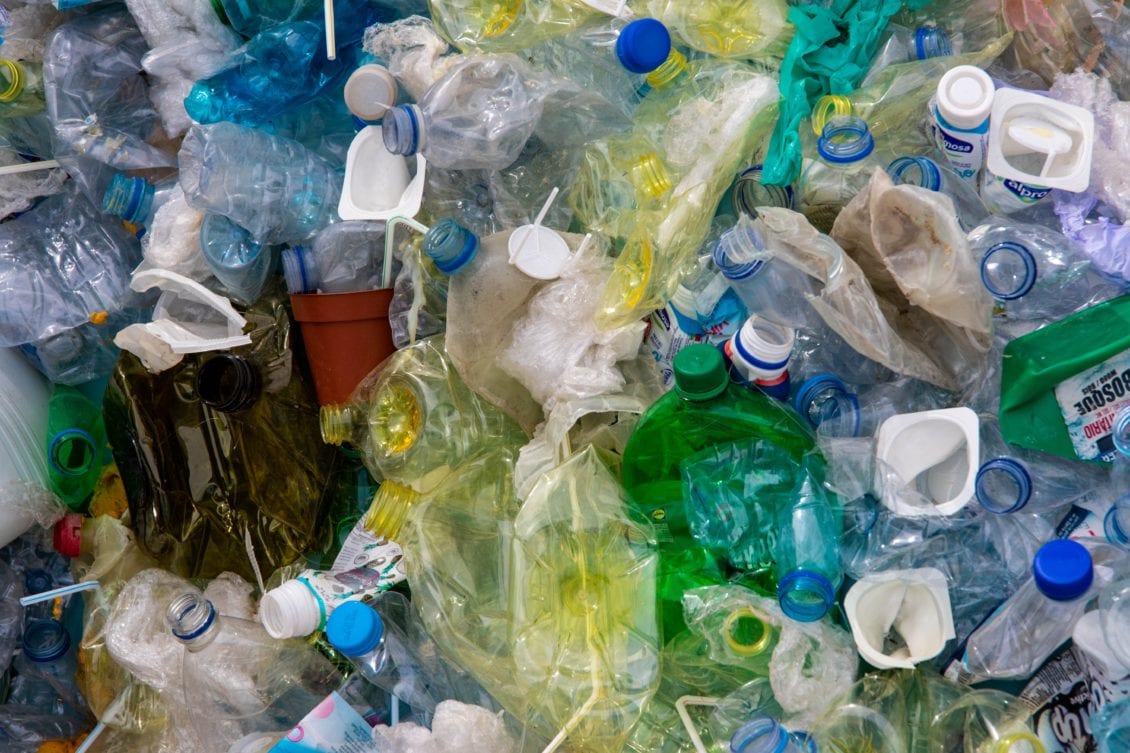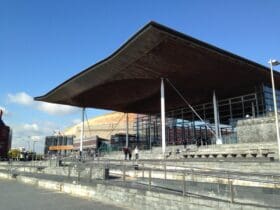Wales is known to be the world’s third-best country for recycling, but the government does not want to settle for number three and aims to be at the top. Recently, the Minister for Environment, Energy and Rural Affairs has made public a plan that aims to support green recovery by focusing on the principles of a circular economy.
The project is called Beyond Recycling and lays out the various methods the Welsh Government is planning to lead the country towards a circular economy.
For those who are not familiar with the term, a circular economy is a system that revolves around using and reusing resources for as much as possible in order to eliminate waste. This creates a closed-loop system that follows a reuse, repair, remanufacture, and recycling mindset in order to minimize resource depletion and reduce pollution. Put simply, the plastic used to make your water bottle can be recycled and reused to make other products, preserving resources.
To meet its goals, which we will be discussing in detail below, the government intends to make plenty of changes, especially in the public sector procurement area, favouring deals with environmentally-conscious businesses.
Before we take a closer look at how the government is planning to counteract climate change and encourage citizens to become more conscious, it is worth taking a look at the impact climate change has on the country.
Climate change is affecting Wales on multiple levels
Floods have been an issue in Wales for a long period of time. Seaside towns such as Aberystwyth are constantly dealing with extreme weather that affects the community on various levels. The area is also home to some of the country’s most important nature and wildlife reserves, making these issues even more challenging.
In 2014, multiple properties along Aberystwyth’s promenade were evacuated due to high tides and strong winds hitting the area. The country has a 2,700 km-long coastline, which struggles to keep water at bay. Experts believe if we don’t do something soon, it is only a matter of time until water starts moving inland. In fact, effects can be felt even now, as farmland is becoming wetter and saltier with every year.
Predictions show that, by 2050, rainfall in Wales will increase by 14% during winter time and 16% during summer, with sea levels around the country expected to rise by 22 cm. As an effect of global warming, winter temperatures are predicted to rise by 2.5 degrees Celsius as well.
The farming sector is facing challenges as well, as the country expects heavier rains, warmer temperatures, and violent storms. Experts at the National Plant Phenomics Centre at Aberystwyth University are currently working to stress-test a variety of plants to observe if they could adapt to climate change.
Three-quarters of Wales’ land is kept as permanent pasture for livestock, but climate change is bound to change things for the worse. The country was known for its green, luscious hills, which are slowly becoming barer and barer. The issue here is the extreme summer weather that puts Wales’ 10 million sheep at risk of being left without natural food.
How consumers and businesses are contributing to meeting recycling goals
Contrary to what some may believe, the pandemic might have had a positive impact over the community’s recycling efforts. 2020 was the year Wales achieved a record high for its recycling efforts, and Lesley Griffiths hopes this is a trend that is going to stick.
When asked how the country managed to achieve this, she stated there are multiple contributing factors. Government efforts, support from local authorities, and access to funding are some of the main factors, but the most important one is related to the people and businesses of Wales, which have started to take recycling very seriously.
Because they spend more time at home, people tend to purchase more, especially online. This leads to an increase in single-use items, but people seem to be aware of that, so they have started recycling more.
Businesses have taken an active approach towards minimizing waste and reducing their carbon footprint by making small, yet important changes to their waste-management process, even when faced with challenges.
One of the main challenges businesses face is the lack of space to create dedicated waste collection areas. This can be easily tackled by using waste compacting devices that crush plastic, cardboard, and metal cans into smaller shapes that take less space and can be successfully stored even in small facilities. For example, this is an ideal baler for plastic waste management, especially for businesses in the retail, manufacturing, and logistics industries. By using this, companies can effectively gather, compact, and store plastic waste until recycling partners can come to collect it. In time, this not only counts as a benefit for the environment, but for the company’s pockets as well, by reducing waste management costs.
An ambitious project to become the best recycling country
Beyond Recycling is an ambitious project that aims to make Wales the leading country in reusing, repairing, and manufacturing using materials that would otherwise be disposed of. Through this program, the government aims to invest in the necessary infrastructure and enable businesses and individuals to take action and contribute to the main goal.
Supporting businesses in reducing their carbon footprint is one of the main promises the government has made. This includes collaborating and promoting businesses that play an active role in reducing waste. Funds for circular economy projects have increased from £6.5m to £43, as the government hopes to encourage businesses to invest in eco-friendly initiatives.
The project is expected to not only help the country manage its resources, but also to facilitate green recovery after the many challenges it has faced in the last year, including the pandemic and Brexit. Lesley Griffiths, the Minister for Environment, Energy and Rural Affairs, has big hopes that the circular-economy model Wales is now using will become world-leading at one point in the future.








Leave a Reply
View Comments